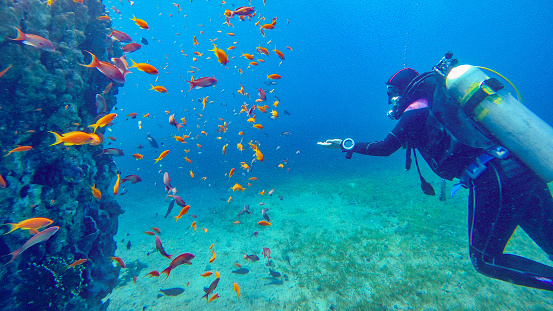Scuba Diving Classes

Scuba diving classes can be a fun way to learn the skills you need to dive safely. Depending on your age and where you live, a variety of courses are available. The best way to find the right course for you is to ask around, look online, and talk with other divers.
How much does it cost to take scuba diving classes?
The price of scuba diving NJ classes varies widely, and depend largely on the agency that's certifying you. You'll also have to consider travel costs if you want to do the course in a different location than where you live.
Which agencies are available in your area?
There are many scuba certification agencies, but the most common are PADI, SSI, NAUI, CMAS and BSAC. Each has its own curriculum, and some have stricter requirements for certain areas than others.
How to choose a scuba school
If you're interested in taking scuba diving classes, start with a search for dive schools that are licensed by your chosen scuba agency. Most have websites that will let you learn more about their schools and services.
When you've found a few scuba schools that interest you, check out their facilities and amenities. It's important to find a facility that is clean and comfortable. This will make you more comfortable during the training sessions, which will help you become a better diver and make your experience easier.
The most common scuba training level is Open Water, which includes both confined and open water sessions. This is where you begin to put your skills learned in the confined water into practice in deeper waters (usually 16ft/5m or more) and a supervised environment.
In this stage, you will be introduced to scuba gear and equipment, including your own scuba tank and air compressor and other essential items. You'll also learn how to properly maintain and use your scuba equipment, and what to do in case of an emergency.
Your scuba diving NJ class will likely be led by a certified scuba instructor who is trained to teach and evaluate your abilities. He or she will assess your performance during the confined and open water stages and provide feedback.
Once you have a strong understanding of the basics, you will complete four open water dives with your instructor in a safe environment. The final open water dive will require you to demonstrate your skills for your instructor's approval.
Whether you're just getting started or looking for a more challenging dive adventure, scuba diving is an exciting and rewarding way to explore the world underwater. You'll see a whole new side of the planet that most people never get to see and will be in awe of what you can discover under the surface.
Scuba diving can be a great way to exercise and tone muscle without getting tired as the water provides buoyancy. It also improves your posture and agility, especially in your feet and legs.
What's more, scuba diving is an affordable sport that can be done with minimal equipment. It's an activity that can be done by adults and children alike. Know more about scuba at https://www.huffingtonpost.com/topic/scuba-diving.
